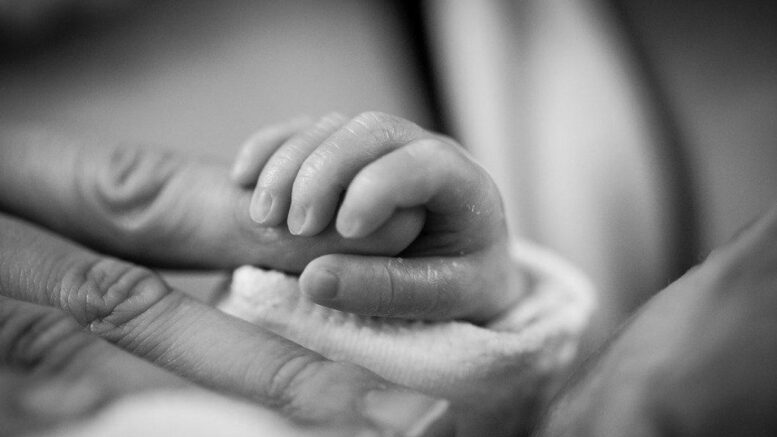A birth injury is an injury that the child suffers before, during, or right after their birth, leading to some kind of disability. These injuries range from mild to severe, and while some are temporary that can be treated quickly, others can cause permanent damage to the child. Many common causes lead to birth injuries, but the most common one is medical malpractice. If your child suffered from a birth injury and you don’t know what to do next, you can reach out to the Birth Injury Justice Center. They will not only guide you about your next step but also help you with a lawsuit and a settlement to help cover medical expenses your child may incur in the future.
Firstly, you need to know that there is a difference between a child with a congenital disability—often known as a birth defect—and a child with a birth injury. The former occurs before birth and during the development of the fetus, whereas birth injury occurs during the delivery of the baby or right after birth. Here are some common reasons behind birth injuries.
#1 Medical Malpractice
Medical malpractice occurs when the doctor fails to meet the standard of care they are expected to provide. This may be due to inexperienced or negligent staff who failed to read the signs, which led to a brain injury. It can occur before birth when the staff fails to read apparent signs during an ultrasound or fails to diagnose any obvious health conditions that may cause harm to the mother or the baby during labor or delivery.
Medical malpractice may also occur during birth if the doctor does not use birthing instruments such as forceps and vacuum extractors correctly. Misuse of these instruments can lead to brain damage to the fetus. Another reason is not properly monitoring issues during birth, such as low oxygen flow to the fetus’ brain.
#2 Oxygen Deprivation
Oxygen deprivation is another common cause of birth injury, which may lead to devastating consequences such as brain damage. Hypoxic-ischemic encephalopathy (HIE) is the most common type of brain injury due to low blood and oxygen flow to the fetus’ brain. Lack of oxygen flow to the fetus’ brain can be due to reasons such as the entanglement of the fetus with the umbilical cord or umbilical cord prolapse.
Umbilical cord prolapse is when the umbilical cord leaves the uterus either before the fetus or with the fetus. Brain injury can cause the death of brain cells, which can impact the child physically, mentally, and emotionally.

#3 Drug-Related Injuries
Medicines can also be a common cause of birth injuries. For example, some women are prescribed medications to induce labor which may cause complications during the delivery like stronger contractions for the mother—leading to stressed uterus muscles, thus increasing the risk of a rupture that can cause harm to both the mother and the fetus.
In these cases, severe complications such as brain damage, seizure, and even death can occur.
#4 Infant Risk Factors
Infant risk factors include:
- Premature babies have a higher risk of birth injury comparatively as the fetus is not fully developed in terms of nervous system and muscles. Premature babies require extra medical attention as they are much more vulnerable to diseases and infections.
- Heavier infants are also at risk of birth injuries as they are difficult to deliver, which may cause a birth injury during delivery.
- Abnormal fetal positions can also cause birth injuries. E.g., if the baby is born buttocks-first or in a breech position, they are likely to suffer a birth injury.
- Delayed birth is another factor that can cause a birth injury. If labor lasts for more than 18 hours, it is considered delayed birth; delayed birth increases the pressure on the fetus’s brain, leading to fetal distress and high blood pressure. During delivery, high blood pressure can lead to a stroke or other cardiovascular diseases.
- Brain injury can cause several different types of trauma, including spinal cord injuries, skull fractures, fractures of the vertebrae, etc. Birth trauma may be apparent or subtle, only becoming apparent after the birthing process has occurred.
#5 Maternal Obesity
Maternal obesity is the obesity a woman suffers from during her pregnancy. Maternally obese women have a higher risk of giving birth to a child with brain injury as compared to the children of women with normal weights during pregnancy.
#6 Cesarean Delivery
Cesarean delivery or C-section refers to delivering a baby by incisions in a woman’s abdomen and uterus. Many things can go wrong during this process due to medical malpractice, such as harming the baby during this procedure or delaying performing a C-section. Although it is said to reduce the risk of birth injuries, it can cause injuries to newborn babies in some cases.
Conclusion
Birth injuries can be temporary and quickly resolved; however, they can also lead to permanent damage in most cases. Sometimes these injuries can be avoided by consulting good and responsible medical professionals.
If your child has a birth injury and you think it is due to medical malpractice, then you can reach out to the Birth Injury Center. They will guide you about your next steps and about potential lawsuits.
